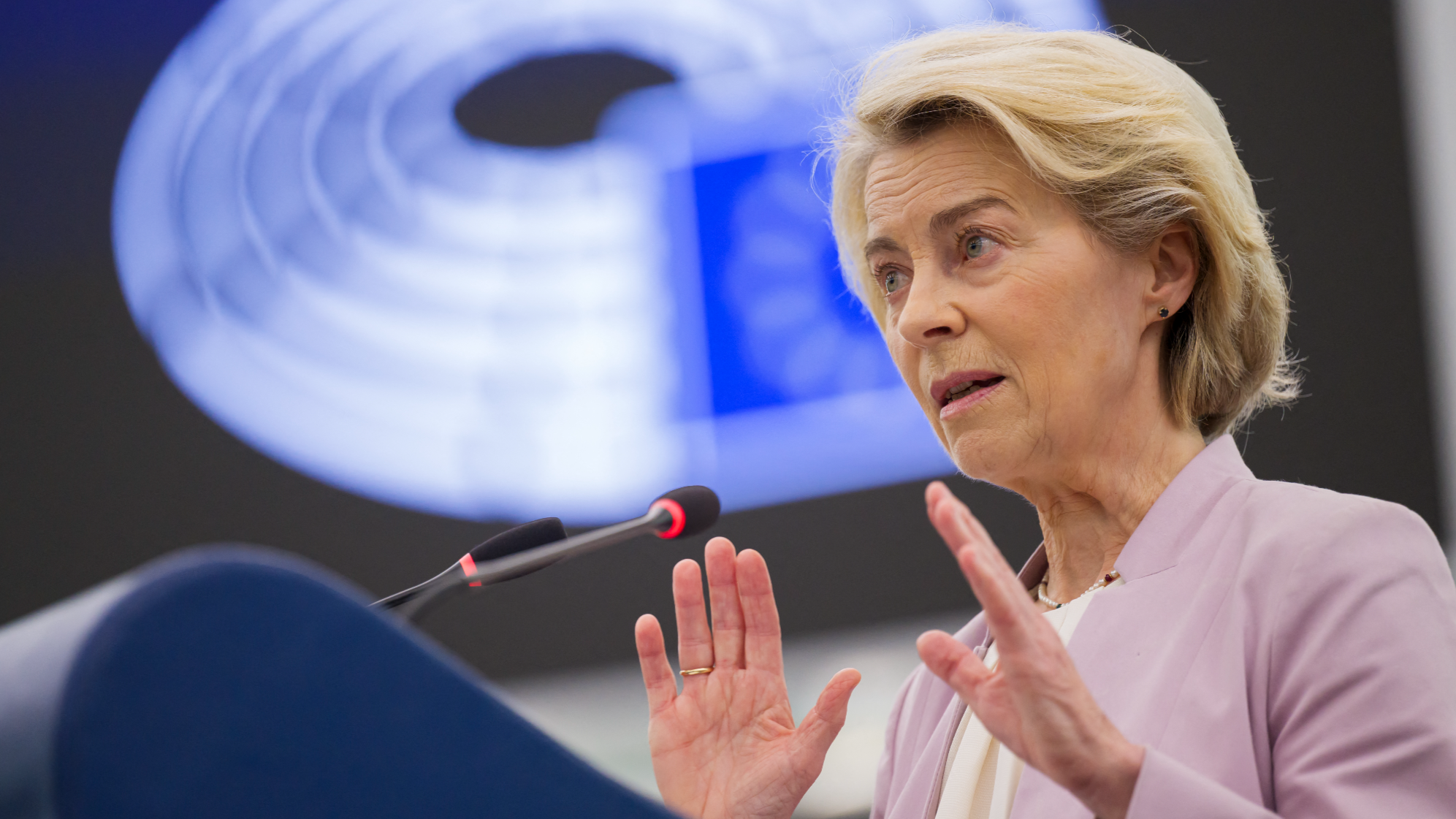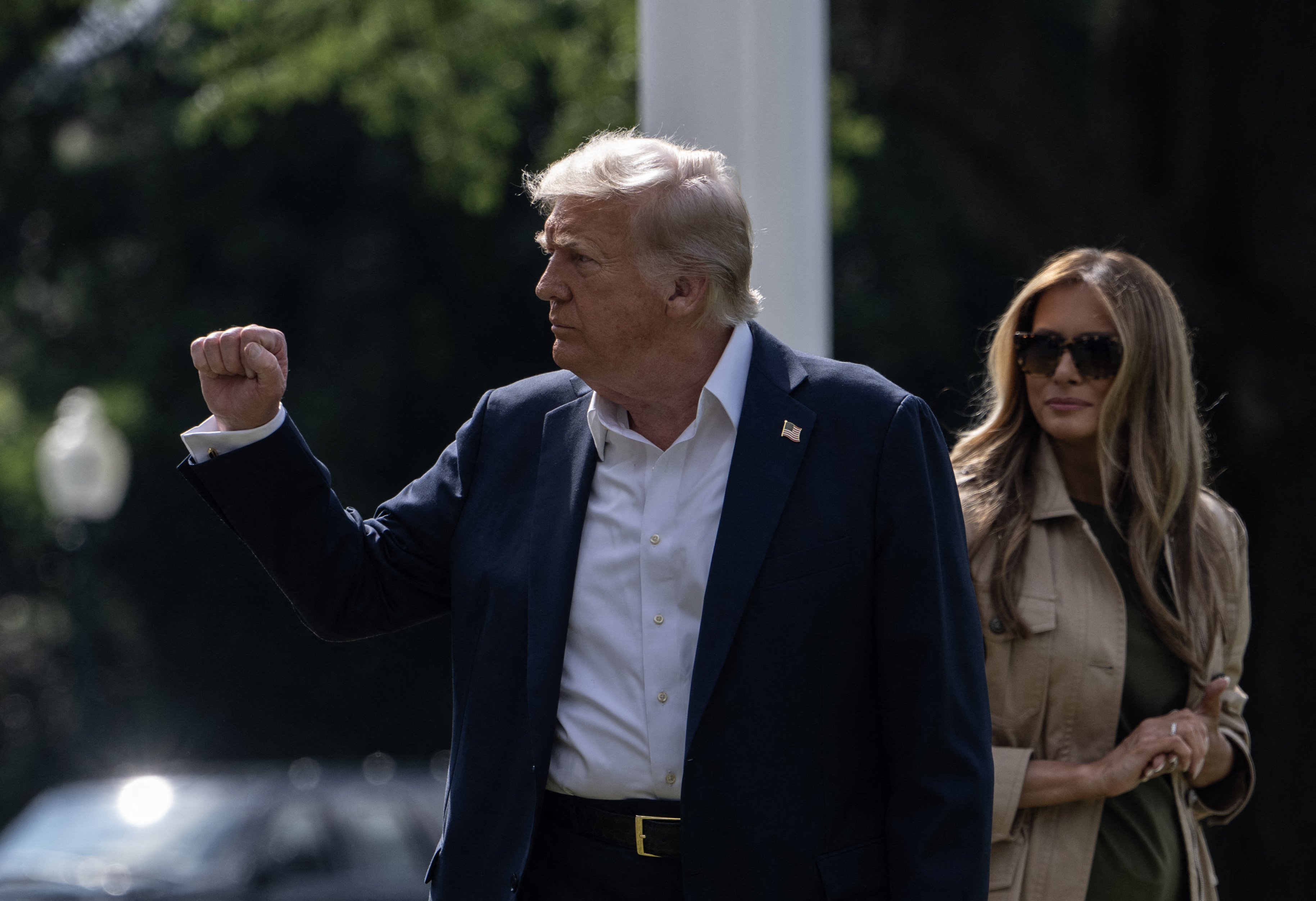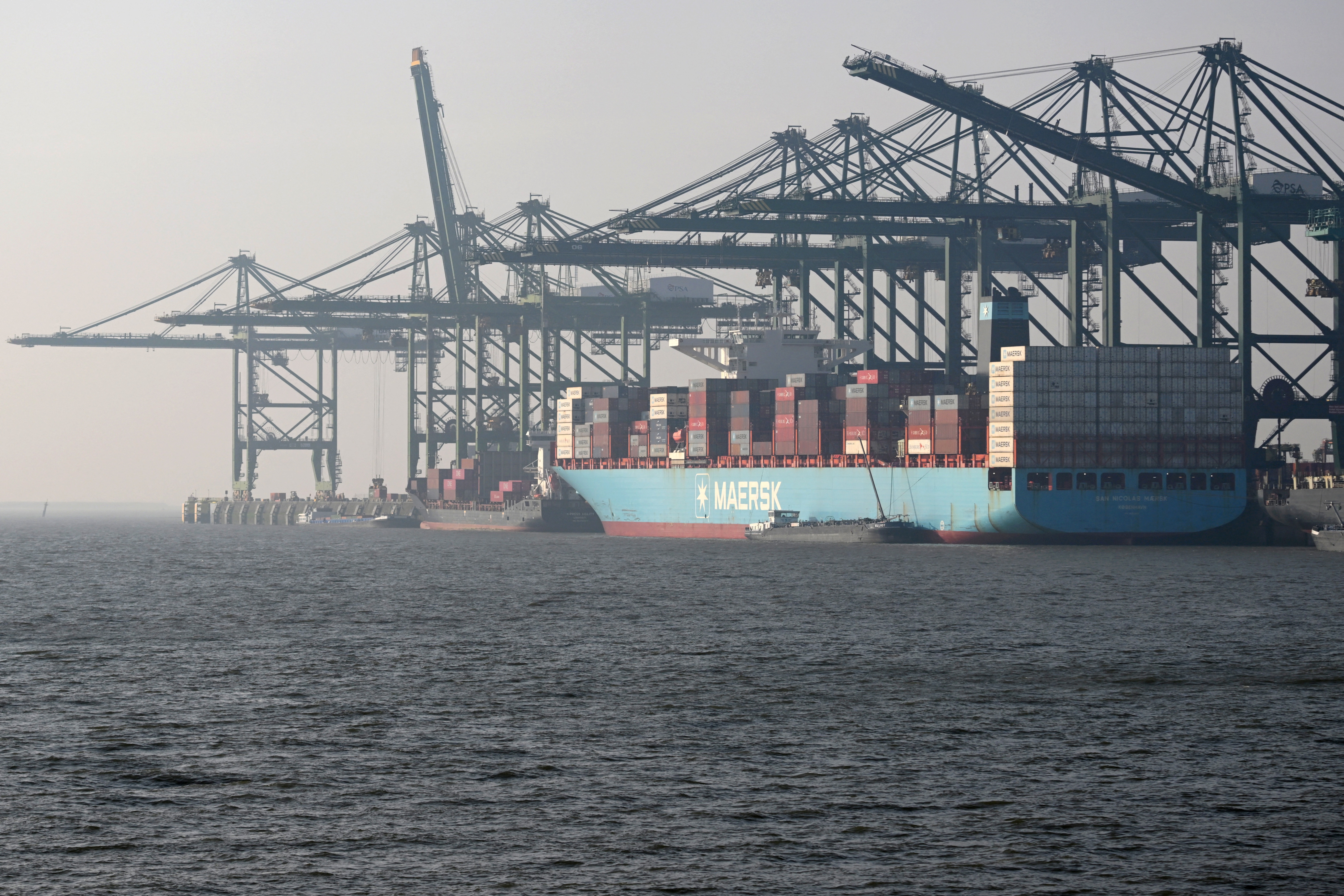
BRUSSELS - US President Donald Trump's surprise announcement of sweeping 30 percent tariffs on European Union (EU) exports on Saturday has provoked a fierce backlash across the bloc, with officials and industry leaders demanding a strong and united response amid continued trade talks.
The proposed tariffs, set to take effect on Aug 1, target EU imports and were justified by Trump as a correction of a "far from reciprocal" trade relations.
European Commission President Ursula von der Leyen warned on Saturday that the tariffs would "disrupt essential transatlantic supply chains, to the detriment of businesses, consumers and patients on both sides of the Atlantic."
ALSO READ: Trump puts 35% tariff on Canada, eyes 15%-20% tariffs for others
While emphasizing the EU's continued commitment to a negotiated solution, she said the bloc "will take all necessary steps to safeguard EU interests, including the adoption of proportionate countermeasures if required."
European lawmakers and national leaders voiced growing frustration, with many urging immediate retaliatory steps.

Bernd Lange, chair of the European Parliament's committee on international trade, said the US letter is "both impertinent and a slap in the face" after weeks of negotiations.
He urged the EU to begin retaliatory measures on Monday as scheduled, stating that "the period of waiting is over."
European Council President Antonio Costa said the tariffs would drive inflation, fuel uncertainty and stall growth. "The EU remains firm, united and ready to protect our interests," he said, urging progress toward a "fair agreement" with Washington.
ALSO READ: US ‘national security’ excuse for sweeping tariffs unconvincing, intellectually dishonest
French President Emmanuel Macron expressed his "strong disapproval" of the US move, and said the EU must speed up preparing "credible countermeasures" using all tools, including anti-coercion, available if talks fail.
Swedish Prime Minister Ulf Kristersson condemned the move as a "unilateral escalation," and said the EU is prepared to respond with tough countermeasures if necessary.
"Everyone loses out from an escalated trade conflict, and it will be US consumers who pay the highest price," he warned.

Czech Prime Minister Petr Fiala criticized the US tariffs for negatively impacting transatlantic trade and called for "unity and determination" to protect the EU's interests.
European industries voiced alarm over the fallout, particularly in sectors tightly integrated with the US market.
ALSO READ: EU seeks trade deal with US, keeps retaliation option open, says officials
Germany's major industry lobby group, the BDI, called the US move "an alarm signal," warning that it could derail recovery and undermine innovation on both sides of the Atlantic.
"Tariffs as a means of exerting political pressure lead to higher costs, jeopardize jobs and undermine international competitiveness, both in Europe and in the United States," said Wolfgang Niedermark, a senior BDI executive.
Isabel Schnabel, a European Central Bank board member, said the tariffs could trigger medium-term inflation and supply chain shocks.
The automotive sector, which is already deeply integrated with the EU and the US, is already feeling the pain.
ALSO READ: EU avoids US tariff letter, eyes concessions, EU sources say
Slovakia, one of Europe's top car-exporting nations, reported a noticeable drop in orders for the coming third quarter. Economy Minister Denisa Sakova said relocating production to the US was not feasible in the short term and emphasized that the damage had already begun.
The German Association of the Automotive Industry (VDA) said the cost to manufacturers was already in the billions and climbing daily.
"It is regrettable that there is a threat of a further escalation of the trade conflict," said VDA President Hildegard Mueller.
"The costs for our companies are already in the billions, and the sum is growing every day," she said, noting that suppliers were also significantly affected by the import duties.
READ MORE: Trump says to impose 50% tariff on copper
Emanuele Orsini, president of Confindustria, Italy's major association representing manufacturing and service companies, condemned the US approach as "unpleasant," while Paolo Mascarino, president of the Italian food and drink industry federation Federalimentare, said the tariffs "exceed any threshold of tolerability" and would trigger significant drops in exports.
Dan O'Brien, chief economist at the Institute of International and European Affairs, said the US move was "provocative" and significantly raised the risk of a wider economic confrontation between the two economies.


